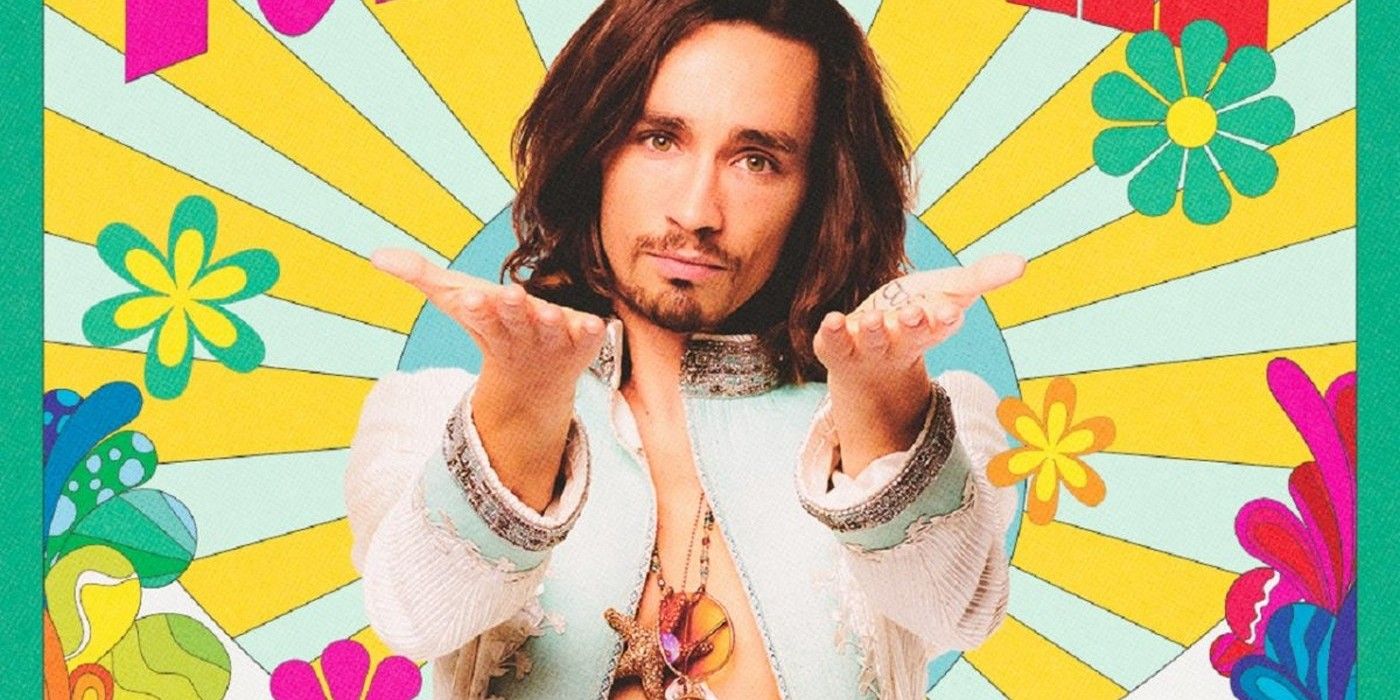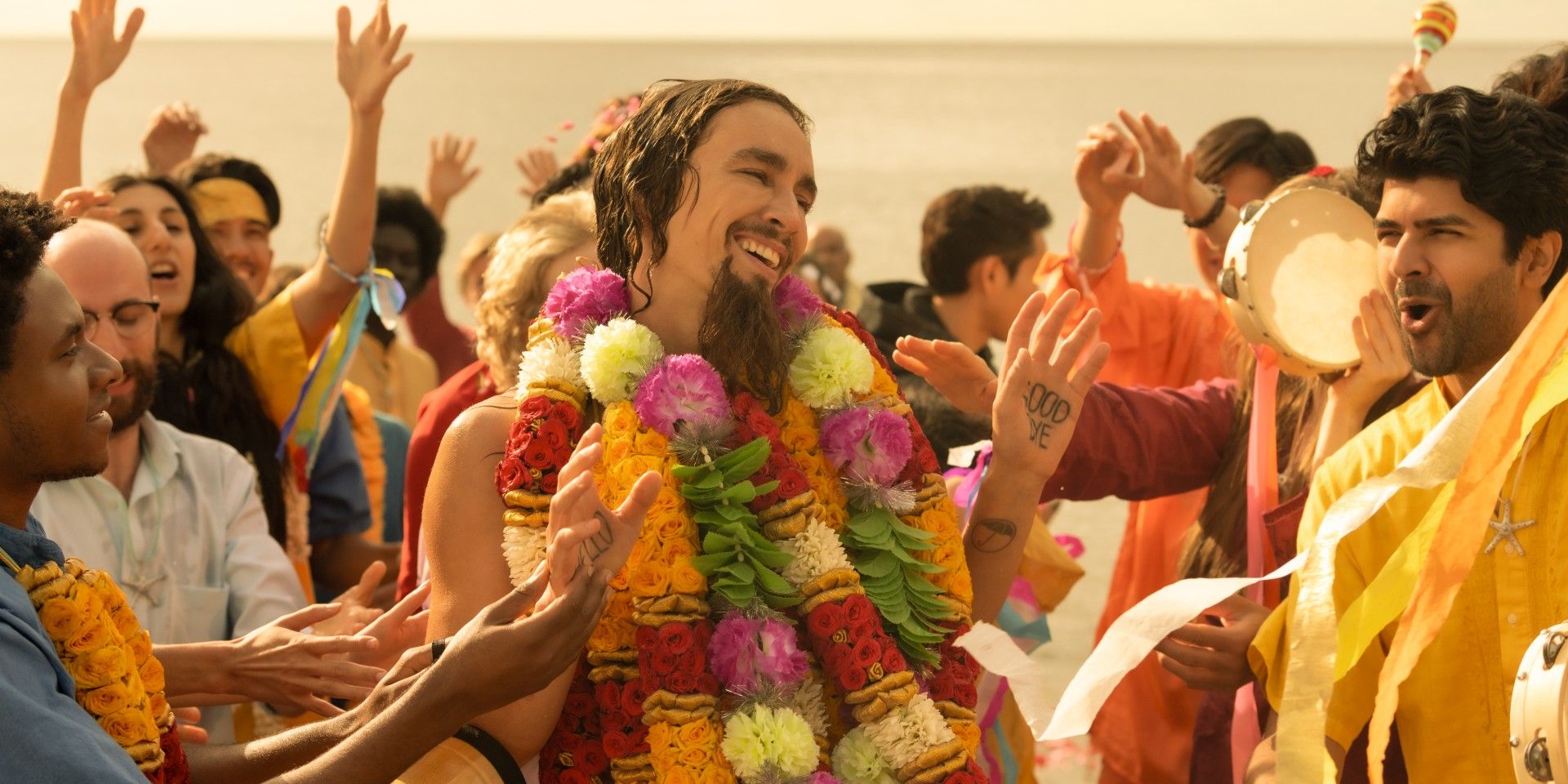What does Klaus' cult in The Umbrella Academy actually believe? At the end of The Umbrella Academy's debut season on Netflix, Number Five was forced to time travel with his siblings to give them all one last chance at stopping the apocalypse. And Five succeeded... in a fashion. At the beginning of season 2, the Hargreeves kids end up scattered across several years of the 1960s. Luther becomes a heavy for Jack Ruby, Diego is institutionalized, Vanya moves onto a farm and Allison gets married. Klaus, on the other hand, starts a cult, obviously.
Initially finding himself down on his luck and conflicted over the presence of Dave in this decade, Klaus is taken in by a rich older woman who gives him status, a mansion and lavish gifts. Klaus uses his new platform and magnetic charisma to start a cult, if not entirely by design. The cult is great at first (aren't they all?) and Klaus is revered for his supernatural powers. Unfortunately, it doesn't take long before the 24/7 adulation grates on Klaus' carefree personality, and he tries running away from his own followers.
The whole point of Klaus' cult is that he never really taught them anything of value. Klaus was simply the mysterious figurehead of a supposedly spiritual movement, blagging his way into the minds of the desperate and gullible. The lessons Klaus' followers do gain they come to realize on their own, but project onto their shaggy-haired leader to enhance his mythical reputation. Nevertheless, Klaus' cult does seem to have a code and lifestyle, mostly derived from future hit pop songs.
When Keechie meets Klaus in jail, he describes giving up his "superficial life" which suggests the cult was a stereotypical anti-establishment, free-spirited type of movement commonly associated with hippies and communes in the 1960s - the kind that preaches love and peace for all mankind with a joint in hand. Klaus uses TLC's "Don't Go Chasing Waterfalls" and Gloria Gaynor's "I Will Survive" as part of his charade to sound deep and meaningful, then leaves his followers (whom he refers to as Destiny's Children) to interpret meaning out of those futuristic lyrics for themselves. When Ben assumes control of Klaus' body, his choice of inspirational lyrics isn't quite as fitting, opting for Backstreet Boys' "Everybody (Backstreet's Back)". The irony is that despite teaching equality and respect for all, Klaus ends up as a quasi-religious idol, worshiped by his followers like any other deity.
A flashback in "The Swedish Job" shows Klaus taking a dip in the River Ganges, a well-known ritual supposed to represent spiritual cleansing in the Hindu religion. For Klaus, however, this stunt is likely another attempt to make himself appear even more mystic and exotic by adopting elements of other religions. Fortunately, Klaus did instill some meaningful lessons into his cult syllabus. Klaus reveals that he told his Destiny's Children small pieces of information about the future, such as the apocalypse coming in 2019, and was referred to as a "prophet" by his followers, Like any self-respecting cult, Klaus's "alternative spiritual community" is rooted in a lifestyle of nature, drugs, music and casual sex, the last of which Jill describes as "the holy union of our multiple spirits." The mind boggles as to how Klaus introduced the idea of "multiple spirits" to his followers.
In describing Klaus' The Umbrella Academy cult, it's Ben who hits the spiritual nail on the head. Klaus is taking advantage of troubled and fragile people to boost his ego and enjoy a luxury lifestyle, with no intention of really helping any of them with guidance, advice or mystical teachings. And he does such a good job of it, that even after admitting his fraudulence, the cult remains full of faith.


